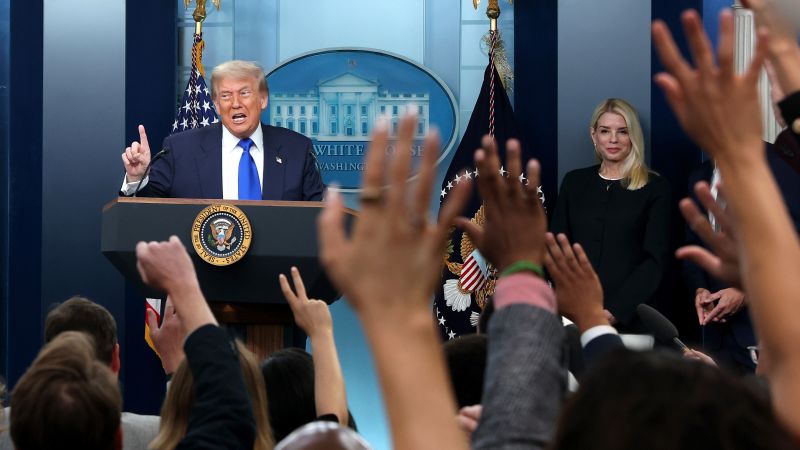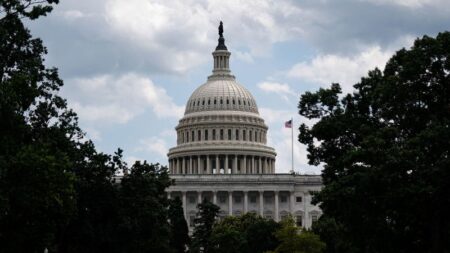In recent developments surrounding the controversial figure Jeffrey Epstein, former President Donald Trump has requested Attorney General Pam Bondi to provide relevant testimony connected to the convicted sex trafficker. This request comes amidst heightened scrutiny and pressure for transparency concerning Epstein’s notorious case, which has raised numerous questions due to its association with high-profile individuals. The myriad of allegations surrounding Epstein’s activities has placed immense public and media scrutiny on those who were connected to him, including Trump himself.
In a post on his platform, Truth Social, Trump expressed his dissatisfaction with the attention given to Epstein, stating that Bondi should release any relevant Grand Jury testimony, pending court approval. He characterized the continuing focus on the case as a “SCAM” perpetuated by the Democrats and suggested that it should cease immediately. His bold statement reflects a belief that the political motivations associated with Epstein’s past are unfairly targeting him and his associates.
Attorney General Pam Bondi responded swiftly to Trump’s directive, asserting her readiness to take action by moving to unseal the grand jury transcripts as early as the next day. This immediate intent to act indicates an acknowledgment of the growing demand for more clarity in a matter that has kept the public and political circles on edge. However, while the Department of Justice has the authority to request the release of such materials, the process might be lengthy due to necessary considerations of privacy and other legal constraints that courts typically evaluate before making such information public.
Trump’s announcement and Bondi’s readiness to act coincided with the publication of a birthday letter sent to Epstein in 2003, which included Trump’s name. The letter featured an illustration and a line wishing Epstein a happy birthday, which led to renewed media scrutiny and analysis of Trump’s past connections to Epstein. Following the report from the Wall Street Journal, Trump declared intentions to sue the publication, citing the letter’s authenticity as questionable, labeling it as “fake”.
Amidst the complexities of the investigation into Epstein, calls for greater transparency have surfaced, including from Trump’s supporters, who are eager for more information regarding the convicted sex offender’s networks. Epstein’s unexpected death while in jail, ruled a suicide, left many unanswered questions that have fueled conspiracy theories and claims of possible cover-ups. The Department of Justice recently issued a memo stating there was no incriminating evidence of a “client list” or of high-profile individuals being blackmailed by Epstein. This revelation infuriated many within Trump’s base who had been anticipating a more thorough disclosure of Epstein’s records, creating discontent among a faction of Trump’s supporters.
The fallout from the memorandum has led to tension among allies, with key Republican figures, including House Speaker Mike Johnson and Representative Ralph Norman expressing their dissatisfaction with the handling of the Epstein case. They anticipated an all-encompassing release of relevant files that would elucidate the matter, which did not transpire. Trump’s handling of the situation has consequently alienated some of his closest supporters, who expected a more vigilant approach in revealing information about Epstein.
Despite the growing dissatisfaction, Trump maintained a supportive stance towards Bondi, highlighting her capability to release credible evidence related to the case. He labeled some of the criticisms as stemming from “stupid and foolish Republicans,” reframing the narrative to focus on what he perceived as a politically motivated attack from Democrats. This framing aligns with Trump’s broader strategy of positioning himself against perceived adversaries in the political landscape.
Overall, the investigations surrounding Jeffrey Epstein continue to be a point of contention, exhibiting intersections of political, legal, and social dimensions that keep this dark chapter in history alive within public discourse. The ongoing calls for transparency may prompt further developments as officials navigate the intricacies of public interest and legal protocol surrounding sensitive information.










